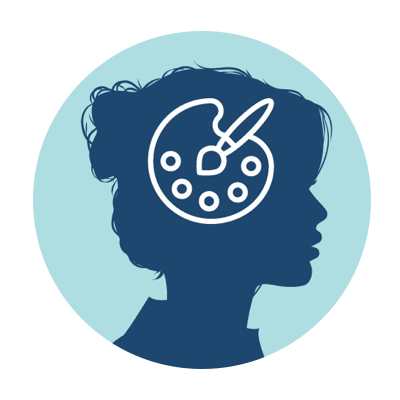The concept of neurodivergence is one of focus and attention in the field of mental health today and presents applications to current clinical, therapeutic, and diagnostic areas in the field. A paradigm shift has occurred in the way individuals with neurodivergent traits are understood. The focus is changing from one where the individual’s condition is seen as a conglomeration of deficits or problems to one of seeing an individual as someone with a combination of unique traits. Some of those unique characteristics are positive and helpful, while others are challenging and obstructive. This holistic view allows us to help our neurodivergent clients find their place in the world based on their unique makeup of characteristics, traits, and skills.
Art therapy is a field of practice where art making is used in treatment and it has broad applications in the mental health field. The wide array of techniques provide benefit to a variety of populations, including neurodivergent teens. With an understanding of neurodivergence, specifically as it relates to neurodevelopmental conditions such as autism spectrum disorder (ASD) and attention deficit/hyperactivity disorder (ADHD), it becomes clear both how and why art therapy is an effective modality for the treatment of teens with neurodivergent traits.

